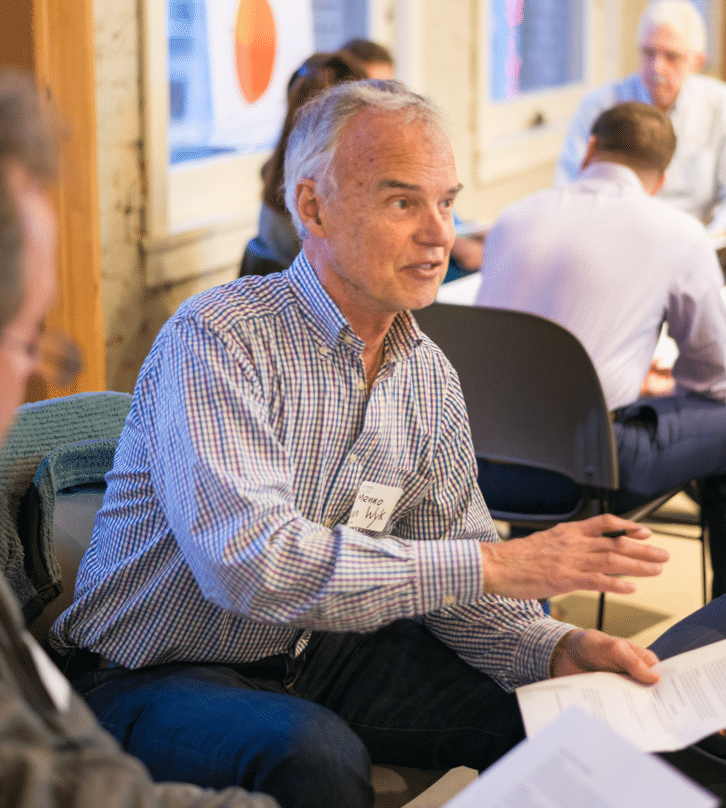The World Food Prize Foundation has announced the winners of the “Nobel Prize for food” in 2024. This year’s prize is split between two honorees for their work on a groundbreaking seed vault established in the Norwegian Arctic.
The 2024 World Food Prize goes to Dr. Cary Fowler of the United States and Dr. Geoffrey Hawtin of the United Kingdom and Canada. Both men played pivotal roles in “preserving and protecting the world’s heritage of crop biodiversity” by spearheading the Svalbard Global Seed Vault “and mobilizing this critical resource to defend against threats to global food security,” the Foundation said. The Svalbard Global Seed Vault was built in 2008 at a cost of nearly $9 million.
This newsletter’s readers should already be familiar with Cary Fowler. He’s the US Department of State Special Envoy for Global Food Security. Through Fowler’s leadership, the State Department launched its Vision for Adapted Crops and Soils (VACS) program, and Fowler gave a nod to Grow Further as one of the inaugural VACS Champions organizations at last year’s international climate change negotiations in Dubai. Geoffrey Hawtin helped to create and lead Crop Trust, a nonprofit devoted to building a global network of crop genebanks and promoting crop diversity. Both men were honored for their work toward establishing the Svalbard Global Seed Vault while working together at CGIAR, the world’s largest government-funded agricultural research group.
“Both Fowler and Hawtin were instrumental in establishing the highly acclaimed Svalbard Global Seed Vault in Norway, built for the purpose of serving as the world’s long-term secure backup repository for crop diversity,” the Foundation said in explaining its decision to award this year’s World Food Prize to the two. The two laureates will share the $500,000 cash prize that comes with it.
“Fowler chaired the Norwegian government’s committee, of which Hawtin was also a member, that collectively assessed the feasibility of the proposed Vault,” the Foundation added. Fowler is given credit for pushing through negotiations that eventually saw the Vault becoming a reality. Norway’s government paid for its construction, but the Vault was made possible through Fowler’s efforts at convincing seed banks and crop genebanks to support the initiative. Hawtin is credited with developing the “technical, management and policy specifications for the Vault which were used by the Norwegian government in its construction and operation,” the Foundation explained further. Over one million seed samples are now being stored in the Svalbard facility.
The awarding of the 2024 World Food Prize was announced on May 9 at the US State Department in Washington, D.C. by Fowler’s boss, US Secretary of State Antony Blinken. The occasion marked the 20th year that the award ceremony was held at the State Department.
The awardees “played a critical role in preserving crop diversity in part by supporting seed banks around the world,” including the famous global seed vault in Norway, Blinken said. Since its opening, he added, “this repository has grown to hold seeds of more than one million crop varieties and more than six thousand major species.” The Svalbard Global Seed Vault is meant to preserve crop varieties in the event of a global catastrophe wrecking global agriculture, such as a major pest or disease outbreak.
Of the seeds kept in the vault “every one of them is a crucial building block for improving global food security,” Blinken said.
Fowler keeps busy leading the VACS program and promoting ways to adapt agriculture to climate change. In a recent video posted to YouTube by Food Nation Denmark, Fowler said adapting crops to the threats that climate change will deliver will take a lot of hard work. “Adaptation of our crops…to climate change is not going to be trivial. It’s not going to be easy,” he said. “The crops are going to have to adapt to all different kinds of extremes and longer periods of hot weather and different types of moisture content and such, and they are going to have to adapt to all parts of the growing season.”
Geoffrey Hawtin has spent less time in the public spotlight. He delivered remarks at a 2017 conference held in Colombia by the Alliance of Bioversity International and CIAT (the International Center for Tropical Agriculture). The occasion was CIAT’s 50th anniversary. On that occasion, he called the tropical crop genebank hosted by CIAT “part of the global system conserving agrobiodiversity.”
As in the past, the 2024 Laureates will likely make an appearance and share insights later this year at the Borlaug Dialogue, a three-day conference on food and agriculture hosted by the World Food Prize Foundation in Des Moines, Iowa.
— Grow Further
Graphic credit: World Food Prize Foundation




